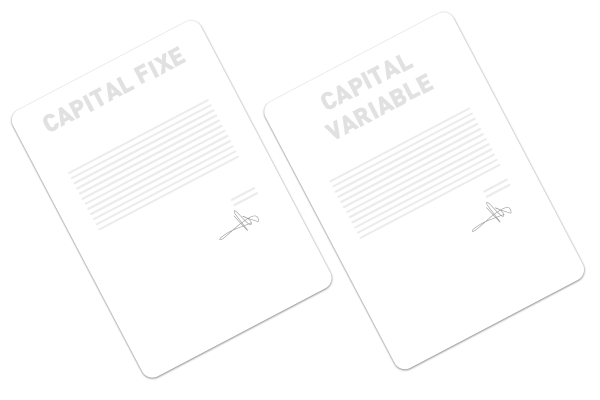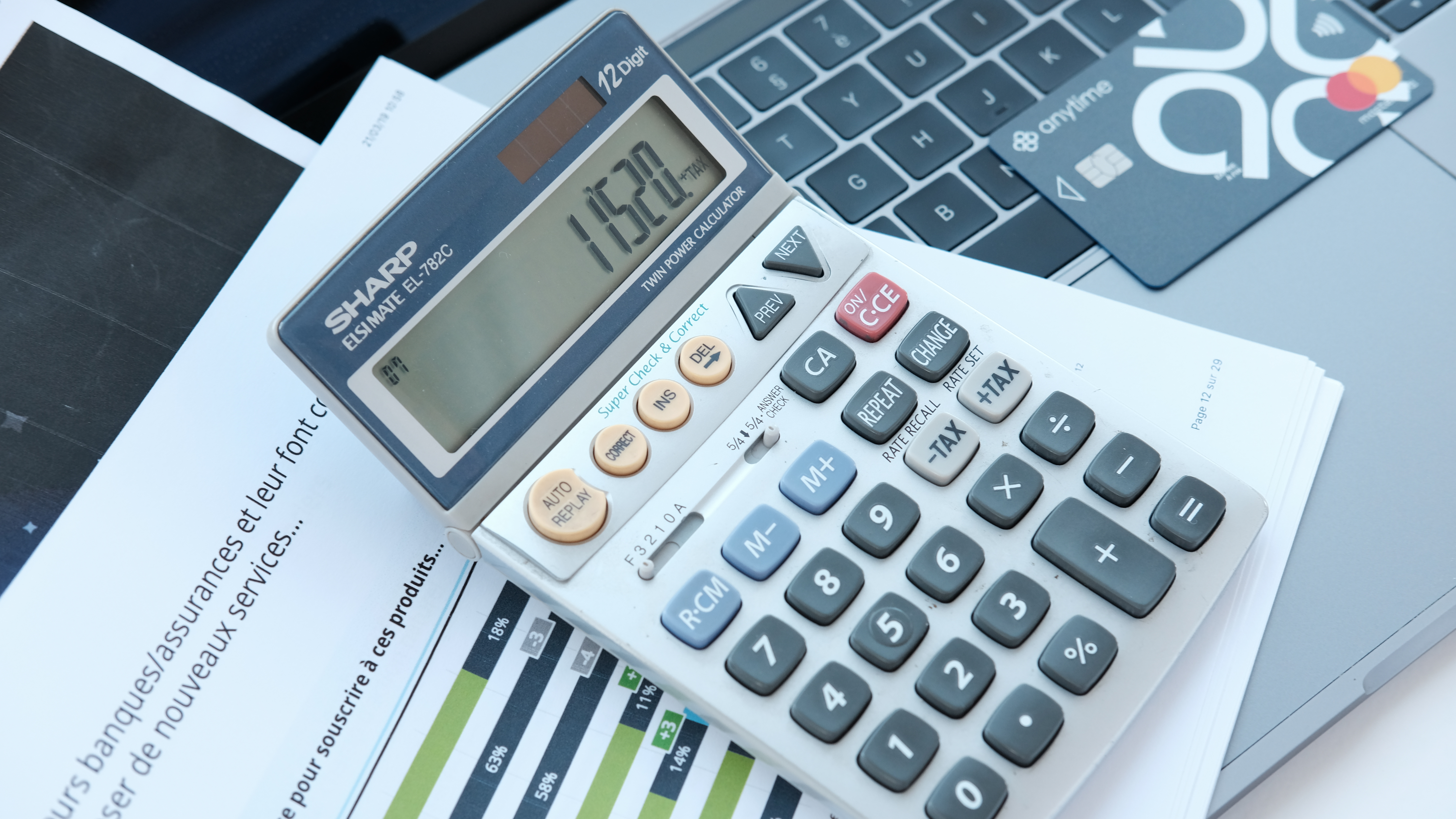
Quel est le capital minimum dont vous besoin pour obtenir votre attestation de dépôt de capital et immatriculer votre société ?
Pour créer une entreprise, un capital social minimum peut être imposé. Son montant dépend du type de société que vous souhaitez créer. Le capital répond à des besoins de l’entreprise et de ses actionnaires. Il s’agit d’un élément primordial dans la création d’une société qui mérite le temps de la réflexion pour bien le déterminer. Il est impératif d'obtenir une attestation de dépôt de fonds ou une attestation de dépôts de capital pour pouvoir immatriculier son entreprise auprés du greffe. Anytime vous assiste dans cette démarche.
Qu’est-ce que le capital social d’une entreprise ?
Le capital social d’une entreprise est la somme dont celle-ci dispose au moment de sa création. Il est constitué de l’ensemble des apports que les associés ont réalisé au cours de la création de la société. Qu’il s’agisse d’apports en numéraire ou en nature, la somme d’argent ainsi réunie est ensuite obligatoirement mentionnée sur les documents officiels de l’entreprise (factures, devis).
Les obligations liées au capital social
Quel montant minimum pour la création d’une société ?
L’existence d’un capital social est obligatoire uniquement pour les sociétés. L’entreprise individuelle n’est pas concernée par cette condition. Ainsi, si vous souhaitez créer une micro entreprise, une EI ou une EIRL, vous n’en disposerez pas.
Pour les sociétés, les montants sont les suivants :
| Type de société | Montant initial minimum | Nombre d’associés |
|---|---|---|
| EURL (Entreprise Unipersonnelle à Responsabilité Limitée) | 1€ | 1 |
| SARL (Société à Responsabilité Limitée) | 1€ | de 2 à 100 |
| SASU (Société par Actions Simplifiée Unipersonnelle) | 1€ | 1 |
| SAS (Société par Actions Simplifiée) | 1€ | de 2 à illimité |
| SA (Société Anonyme) | 37 000€ sans épargne publique 225 000€ avec épargne publique | de 7 à illimité |
| SNC (Société en Nom Collectif) | 1€ | de 2 à illimité |
La rédaction des statuts
Lors de la rédaction des statuts, le capital social doit être obligatoirement inscrit. Il est nécessaire de préciser également si la libération du capital, c’est-à-dire le dépôt effectif des fonds en numéraire sur le compte, se réalise dans sa totalité ou en partie au moment de la création de l’entreprise. Si la libération n’est que partielle, vous devez en préciser le pourcentage.
| Type de société | Pourcentage minimum à libérer à la création |
|---|---|
| EURL / SARL | 20 % |
| SASU / SAS | 50 % |
| SA | 50 % |
| SNC | selon les modalités fixées par les associés |
Le blocage du capital social sur un compte dédié
Constituer un capital social est une étape majeure pour pouvoir créer une société. Les fonds en numéraire doivent être bloqués sur un compte bancaire spécifiquement dédié et ouvert au nom de l’entreprise. La banque vous remet ensuite une attestation de dépôt des fonds ou une attestation de dépôt de capital qui permet de réaliser les procédures d’immatriculation. Les fonds sont alors débloqués sur présentation du Kbis qui vous est délivré après l’immatriculation de la société au greffe.
À quoi sert-il ?
Définir les parts sociales de chaque associé
Dans une société créée par plusieurs associés, la répartition des parts sociales varie en fonction des apports de chaque membre. Leur pouvoir de décision au sein de l’entreprise dépend également de cette répartition. En effet, une part sociale équivaut à une voix lors des prises de décisions en assemblée générale.
Par exemple, une SARL est constituée par 2 associés avec un capital social de 10 000 €. L’un apporte 2 500 €, soit 25 % du capital, l’autre fournit 7 500 €, soit 75 % du capital. Le second détient alors 75 % des parts de l’entreprise, il sera ainsi majoritaire au moment des votes. Cela signifie que l’autre associé possède un pouvoir de décision très limité.
Avec cet exemple, on s’aperçoit qu’il est indispensable d’anticiper et d’évaluer correctement l’impact de la répartition des parts sociales sur la vie de la future société. Lorsqu’un associé est majoritaire, il dispose de tout le pouvoir de décision, ce qui peut dans certaines situations créer des conflits.
Donner un aperçu de la solidité financière de la société
Pour les clients, fournisseurs et partenaires potentiels, un capital social cohérent par rapport à la taille de l’entreprise et au secteur d’activité constitue une certaine garantie, notamment lorsque la société est jeune.
Le capital social peut devenir un véritable élément de communication. En effet, l’information est indiquée sur les supports de la société : papier à entête, devis, factures, site internet. Celle-ci rassure les différents interlocuteurs.
Financer les premiers investissements
Une fois débloqués par la banque, les fonds contribuent à financer le lancement de la société. Ils permettent de réaliser les premiers investissements et/ou de compenser les manques de trésorerie impactant les premiers mois d’activité. À cet effet, une évaluation précise des besoins de l’entreprise en début d’activité doit être réalisée afin de déterminer et de démarrer avec un capital social suffisant.
Est-il important d’avoir un capital social élevé ?
Compte tenu des différents rôles que joue le capital social d’une entreprise, il est primordial de bien réfléchir au montant minimal nécessaire dont vous avez besoin pour lancer votre activité. Même si aucun capital minimal n’est imposé pour la plupart des formes de sociétés, ne vous précipitez pas en créant une société avec un euro symbolique. Manque de crédibilité, risques de faiblesses financières au démarrage, frein au développement, un capital social trop faible peut s’avérer extrêmement problématique.
Aux regards de vos partenaires potentiels, et notamment les banques, le montant du capital de votre entreprise reflète votre implication dans le projet. Un capital élevé démontre une certaine détermination qui poussera et incitera à vous faire confiance. Rassurez-vous, le capital social peut évoluer. Si vous ne pouvez pas commencer votre activité avec un gros capital et que votre projet ne le nécessite pas, vous pouvez tout à fait envisager un démarrage avec un petit capital, puis l’augmenter par la suite. Une hausse de capital peut s’effectuer de différentes façons.
- Faire entrer de nouveaux investisseurs, ce qui implique une modification de la répartition des parts sociales de l’entreprise.
- Injecter des réserves ou des bénéfices réalisés par les exercices antérieurs.
Concrètement, les obligations légales concernant le capital d’entreprise ne représentent qu’une partie de la problématique. Au cours de sa détermination, il est essentiel de se poser les bonnes questions pour assurer la pérennité financière de l’entreprise. Cela ne signifie pas qu’il est impossible de créer une société viable avec un capital initial faible, mais simplement que la question doit être bien étudiée.








